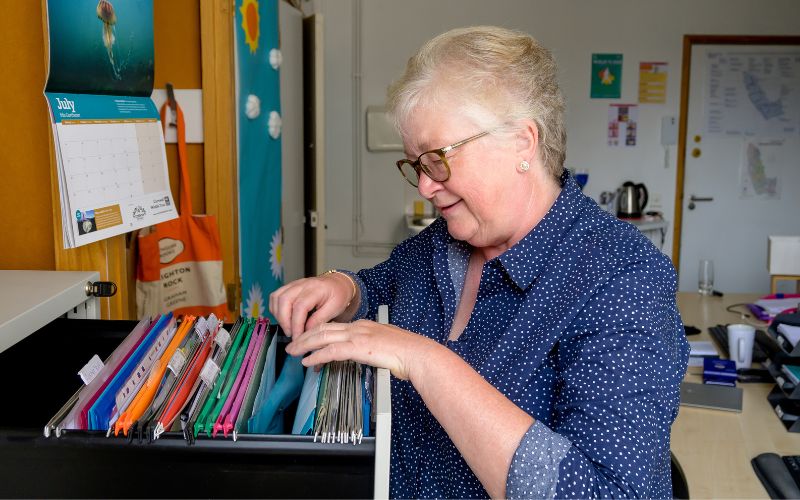Going Back to Work or Re-training

You may have seen our blog post about the rise of ‘unretiring’. Unretiring is leaving retirement to step back into work.
The reasons for unretiring are varied. Some are returning to work due to the financial pinch of the cost-of-living crisis and others are missing the social aspect that the workplace has to offer.
In society, we’re living longer, and arguably healthier lives which have opened the opportunity to think differently about retirement and how we continue to make use of our wisdom and experiences as we get older.
Here are our tips and advice for returning to work or re-training for work or personal development.
Going back to work
Returning to the workforce can be a difficult thing to process. To ease your transition towards employment, there is support available for people over the age of 50.
- There is government guidance on finding a job.
- Use the ‘Find a job’ service or the 50+ version
- If you want to improve set skills, you can find out about improving your English, maths and IT skills.
- Get information about life long learning and adult education from the National Careers Service.
Flexible working
If you are considering going back to work, there might be flexible hours available to you. Citizens Advice provide guidance on applying for flexible working hours.
Centre for Aging Better and Timewise have created an employer toolkit on flexible working for over 50s.
Digital Midlife MOT
On the new Government initiative You can find:
- Work options for people aged 50+
- Skills for Life: Training support and advice to gain the skills you need for the job you want, at any age
- Four Steps for Finding Work including finding what you're good at, help with your CV, applying for jobs and improving your chances of being successful when applying for jobs.
Writing your Curriculum Vitae (CV)
A CV can make the difference between securing an interview or not. It’s recommended to be as clear and relevant to the role you’re applying for as possible and to be no longer than 2 sides of A4.
If you need support creating a CV, the National Careers Service can help you with everything you need. Contact an adviser for help.
Your local Jobcentre may also provide advice and help to write your CV.
Lifelong learning
A key thing to remember is that you’re never too old to learn. Here’s some options available for learning and funding.
Open University
The Open University offers flexible part-time study, distance and open learning for courses and qualifications. You can be at any age for the self-funded study. Find out more on the Open University website.
Funding available for adult learners
Adult learners can apply for grants and bursaries to help pay for courses and training. Usually, you do not have to pay this money back but make sure you check this before applying.
For most grants and bursaries, you apply directly to the organisation, they will be able to give criteria for qualifying and help filling in an application form.
There are also some course-specific bursaries available. Find out more on the gov.uk website
If you have a health condition or a disability
Access to Work can help you get or stay in work if you have a physical or mental health condition or disability.
Through Access to Work, you can apply for:
- a grant to help pay for practical support with your work
- support with managing your mental health at work
- money to pay for communication support at job interviews
Page last updated: November 2023.
MHA in your community
Find the care home, retirement community, or support group that’s right for you

